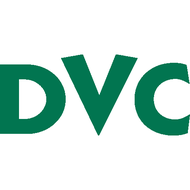Associate in Arts in Economics for Transfer (Associates)
迪布罗谷学院
加利福尼亚州普莱森特希尔
The associate in arts in economics for transfer is intended for students who plan to complete a bachelor’s degree in a similar major at a CSU campus. Students completing this degree are guaranteed admission to the CSU system, but not to a particular campus or major.
In order to earn the degree, students must:
- Complete 60 CSU-transferable units.
- Complete the California State University-General Education-Breadth pattern (CSU GE-Breadth); or the Intersegmental General Education Transfer Curriculum (IGETC) pattern, including the Area 1C requirement for Oral Communication.
- Complete a minimum of 18 units in the major
- Attain a minimum grade point average (GPA) of 2.0.
- Earn a grade of C or higher in all courses required for the major.
Students transferring to a CSU campus that accepts the degree will be required to complete no more than 60 units after transfer to earn a bachelor’s degree. This degree may not be the best option for students intending to transfer to a particular CSU campus or to a university or college that is not part of the CSU system, or those students who do not intend to transfer.
Students must complete each course used to meet a major requirement with a “C” grade or higher. Some courses in the major satisfy both major and CSUGE/IGETC general education requirements; however, the units are only counted once toward the 60 unit requirement for an associate degree. Some variations in requirements may exist at certain four-year institutions; therefore, students who intend to transfer are advised to refer to the catalog of the prospective transfer institution and consult a counselor.
完成该课程的学生将能够...
- apply economic theories and economic reasoning to real-life situations.
- use analytical techniques to measure economic conditions related to the individual, business firms, industries, and economic systems.
- explain the role that households, business organizations, governments, and the international sector, play in free markets, command economies, and mixed economies.
- evaluate the objectives, limitations, and mechanics of regulation, taxation, tariffs, quotas, and monetary and fiscal policies.
- use the quantitative methodology to measure economic outcomes.










